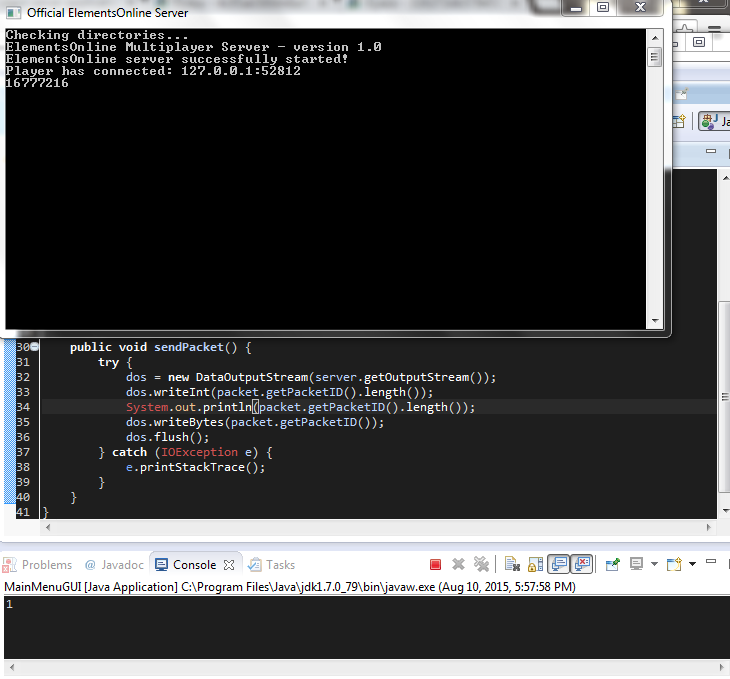Hey guys!
I am writing a multiplayer game and I'm going on to the networking now. But I run into an issue.
My C# server is not reading the bytes sent from my java client correctly.
This is the code on both sides:
Client:
public void sendPacket() {
try {
dos = new DataOutputStream(server.getOutputStream());
dos.writeBytes(packet.getPacketID());
dos.flush();
} catch (IOException e) {
e.printStackTrace();
}
}
Server:
NetworkStream playerStream = client.GetStream();
int recv;
byte[] data = new byte[client.ReceiveBufferSize];
Console.WriteLine("Player has connected: {0}", client.Client.RemoteEndPoint);
if (client.Client.Available > 0) {
PacketReader s = new PacketReader(data);
s.s(); // This does "ReadString()" from BinaryReader.
}
My Strings show up blank in the console. Any help?





